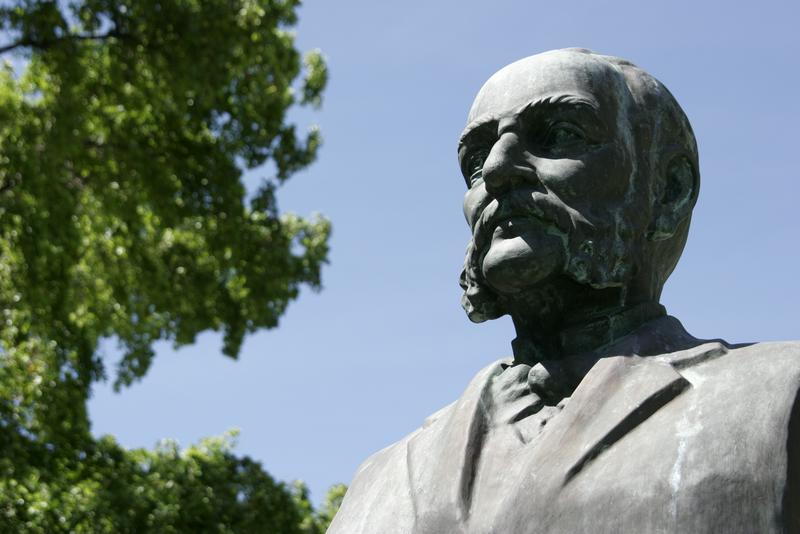Dr. Carlos Finlay, the Man Who Saved the Panama Canal
By | December 5, 2018

As a Cuban doctor in the 1850s, Carlos Juan Finlay saw his fair share of patients suffering from yellow fever and malaria and he was determined to uncover the causes of these two diseases. His research, observations, and experimentation led him to one conclusion. Mosquitoes spread the viruses for these diseases from person to person. His work, however, was dismissed by the medical and scientific communities. It wasn’t until disease outbreaks halted the construction of the Panama Canal that scientists began to believe in Finlay’s findings. His groundbreaking work on the link between mosquitoes and the transmission of illness made it possible for the Panama Canal to be completed.

As a Physician, Finlay Noted Mosquito Bites
Finlay, the son of a Scottish doctor, studied in France -- his mother’s homeland --, Cuba, and the United States, earning his medical degree from Jefferson Medical College in Philadelphia. After he set up his own practice in Cuba in the 1850s, he began seeing lots of malaria and yellow fever patients. He observed that people suffering from malaria or yellow fever often had more mosquito bites on their skin than others. Living in the warm, tropical climate, mosquitoes were a common pest and an annoyance, but Finlay believed they could also be deadly.

Mosquitoes were the Carriers
His research into both malaria and yellow fever showed that neither disease could pass from human to human. The virus needed a carrier, or vector, to spread the disease. His research concluded that the Aedes mosquito was this vector. In 1871, Finlay presented his finding to a committee of noted physicians in the United States. To Finlay’s disappointment, the group of doctors told Finlay that his theory was wrong. Mosquitoes, they told him, could not serve as a vector. Finlay was crushed that such well-respected physicians would brush off his research without giving it careful consideration. He returned to Cuba frustrated but carried on his research.

Disease Halted the Construction of the Panama Canal
For a long time, engineers had been considering the isthmus of Panama for a canal project. Such a canal would cut shipping times and increase trade between the Pacific and Atlantic oceans. In 1881, a team of French engineers…the ones who successfully built the Suez Canal in Egypt…went to Central America to build the Panama Canal. In the eight years that the French worked on the project, more than 22,000 workers died after falling ill with malaria and/or yellow fever. The high human cost forced the French to give up the canal project in 1889.

Soldiers were Falling Ill During the Spanish American War
Ten years later, during the Spanish American War, so many American soldiers were coming down with malaria or yellow fever in Cuba that the United States government asked Walter Reed, an Army surgeon, to head up a study looking into the causes and prevention of both diseased. Carlos Finlay was asked to join the committee. The first thing Finlay did was to invite the entire committee to come to his offices in Cuba to review his decade’s worth of research.

Again, Finlay’s Work Was Dismissed
Once again, his fellow doctors and researchers dismissed Finlay’s findings as inaccurate. How could an insect like the mosquito, they said, be responsible for the spread of diseases? It seemed more likely to the committee that the culprit was the heat and humidity of Central America. But this time, Finlay stood his ground. He meticulously explained his years of research and the experiments that he had conducted. In the end, Walter Reed and the committee agreed with Finlay’s findings.

Reduce Mosquito Bites…Reduce Disease
Now that they understood the role that mosquitoes play in the spread of disease, the next step is to reduce opportunities for mosquitoes to bite. When the American engineers resumed work on the Panama Canal in 1903, they did so after a number of safety measures were put into place first. Stagnant water was drained. Underbrush was cleared. Mosquito netting was draped over beds and screens were installed in windows. Mosquito repellents were introduced. Smudge fired were lit. Sick people were quarantined so that mosquitoes couldn’t bite them and carry their disease to others. Because of these efforts, the number of deaths at the Panama Canal construction site significantly decreased and the American engineers were about to complete the project.

Finlay’s Research Saved the Panama Canal
If it weren’t for the decades of dedicated research that Finlay did…even after his peers told him he was wrong…the Panama Canal would not have been completed and the death rates in impacted areas would continue to increase.

